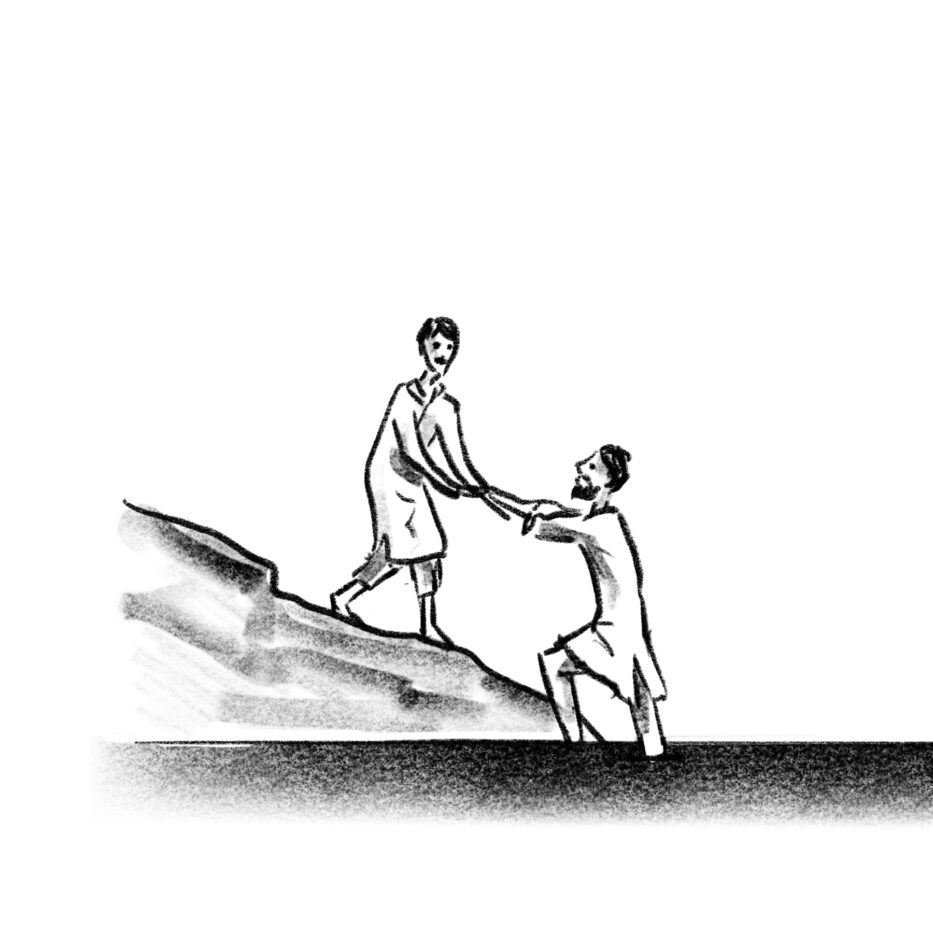
Image by Ivy Sanders Schneider

Image by Ivy Sanders Schneider
Even though Pakistan emits less than one percent of the world’s greenhouse gasses, our country is among those hardest-hit by climate change. This summer, monsoon rains and melting glaciers have combined to displace some 35 million people, while over 1,500 are already reported dead. It is estimated that Pakistan will lose around $30 billion as a result of the widespread destruction caused by the floods. Farms have been devastated and livestock killed on a massive scale, triggering fears of severe food scarcity in the months to come.
In a country marked by political instability, rising inflation, and now climate disaster, we do not have a choice but to fight for each other, and to demand a vastly different world. People in Pakistan are currently suffering, through no fault of their own, because of the relentless greed of the powerful, and the crises our oppressors — both our own state and so-called “first-world nations” — have created. Make no mistake: these floods are man-made. So whom do we hold accountable? Whose collar do we grab to say, our people are dying because of you? How many institutions, peppered across the world, are to be blamed for the losses borne by Pakistan’s working masses now that a third of the country is underwater?
An uptick in mutual aid efforts throughout Pakistan attests to the growing distrust of public institutions. Frustrated by the state’s poor management of the floods, many of us called for collective action and a solidarity-based approach. Since its inception, the Women Democratic Front (WDF) has been committed to a socialist-feminist vision: a future free from capitalist exploitation of our lands for profit and plunder. We demand climate reparations from wealthy states; they must admit their historical responsibility for looting our lands and exacerbating the disastrous effects of climate change in our part of the world. The international community, meanwhile, must pressure the IMF to cancel Pakistan’s debt, instead of continuing to give out loans with strings attached that further immiserate our working classes.
This summer, the WDF has sent money, rations, and emergency supplies to our network of comrades in Sindh, Saraiki Waseb, Balochistan, Gilgit-Baltistan, Chitral, Khyber Pakhtunkhwa, and the outskirts of major cities throughout Pakistan. While charity and zakat (an obligation for Muslims to donate a certain portion of their wealth) have a history in Pakistan, they are only stopgap measures. Those affected by the floods need rehabilitation and housing — long-term solutions. Still, I want to believe that we are fighting to undo the damage that has been caused to our communities by the very institutions that supposedly exist to protect them. We need to trust each other, to develop comradery and solidarity, and to build anew.
Zoya Rehman is an independent researcher-writer and political organizer with Women Democratic Front, a socialist-feminist resistance formation based in Pakistan.